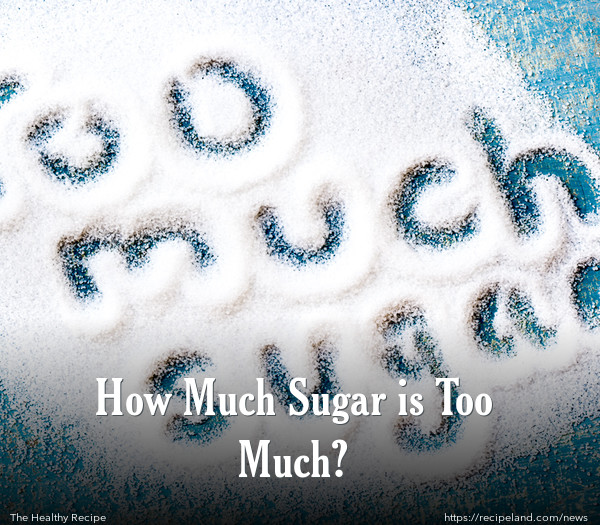Numerous studies have shown that diets high in sugar can lead to serious health problems. Experts warn that food labels are misleading.
Despite growing concern about the amount of sugar we are consuming, and government efforts to properly label sugars, salt and fats on nutrition labels – knowing how much sugar is actually in our food can be hard to distinguish.
US and UK policy makers have been demanding more accurate nutrition labels from the food industry in the past decade. The World Health Organization’s released a statement in 2003 that only 10% or less of our daily diet should consist of added sugar. This advice led to a change in food labeling in the UK later that year, and has helped change food industry legislation in other European countries.
The American Heart Association’s 2009 statement warned of the many health risks linked to consuming too much sugar. The AHA findings have been supported by several studies since – linking excess sugar to obesity, metabolic diseases, type 2 diabetes, bowel cancer and cardiovascular disease.
Dr. Aseem Malhotra, a London based cardiologist, warns that the current food labelling and nutritional guidelines are misleading. Dr. Malhotra argues that foods with added sugars as well as intrinsic sugars (sugars that are naturally present in fruit juices and other sweeteners) are largely to blame for the rise in diabetes and obesity in the UK.
Current nutrition labels do not differentiate between these intrinsic sugars and added sugars – so consumers can’t know for sure how many grams of sugar they are eating in any serving.
“With one in three children in the UK overweight or obese by the age of nine, and a recent analysis of 50,000 children by researchers at Oxford University published in the BMJ demonstrating markers of raised cholesterol, raised blood pressure, and even enlarged hearts in this group we need to be more vigilant than ever about what we and our children are putting into their mouths.”(1)
Dr. Malhotra and other health experts have even compared the food industry to Big Tobacco – companies who value profits over people’s health. Controlling tobacco use with the “3A’s” (affordability, acceptability, accessibility) is a model that some health advocates would like to use to help limit the amount of sugars in children’s average diets.
According to the USDA, children between 4-8 years old should consume no more than 3 tsp of sugar each day. Most sweetened breakfast cereals contain more than that amount in a single serving. Adults should keep their intake of added sugars to 150 calories per day, or less.
It is now well known that eating too much sugar and sweetened foods can cause weight gain and serious health risks. But Dr. Malhotra also warns against buying into the often misleading food labels claiming foods are “low calorie” or “low fat.” This type of labelling makes many people think they are choosing healthier foods, when in reality these options may be even worse.
“It horrifies me to see people gorging on products marketed as "low fat" that are loaded with
carbohydrates and sugar which is more likely to lead to increased weight. There is mounting scientific evidence that not only is sugar toxic to the body but it also drives appetite by interfering with hormones produced by the brain that give us a sense of fullness. It may also have addictive properties.”
It is important for there to be proper nutrition labels, and legislation that holds the food industry to a higher standard than we have seen in the past.
However, individuals are responsible for making educated decisions and purchasing healthier foods. Our health, and the health of our children, ultimately falls on our own shoulders.
So what can we do to avoid excess sugar consumption?
Read nutrition labels, but also research the ingredients that are listed in processed foods. Avoid sodas and other sugar-laden drinks. Limit the amount of fruit juice your family consumes, since juices are high in natural sugars. Eat more fresh fruits, vegetables, lean meats and whole grains.
SOURCES: https://www.sciencedaily.com/releases/2013/05/130521194147.htm; https://www.huffingtonpost.co.uk/dr-aseem-malhotra/false-advertising-by-big-food-driving-obesity_b_1968682.html; Image courtesy of Stuart Miles / FreeDigitalPhotos.net










Comments